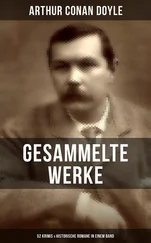With that recognizance and pledge of love
Which I first gave her; I saw it in his hand:
It was a handkerchief, an antique token
My father gave my mother.
EMILIA
O heaven! O heavenly powers!
IAGO
Come, hold your peace.
EMILIA
‘Twill out, ‘twill out:—I peace!
No, I will speak as liberal as the north:
Let heaven and men and devils, let them all,
All, all, cry shame against me, yet I’ll speak.
IAGO
Be wise, and get you home.
EMILIA
I will not.
[Iago offers to stab his wife.]
GRATIANO
Fie!
Your sword upon a woman?
EMILIA
O thou dull Moor! that handkerchief thou speak’st of
I found by fortune and did give my husband;
For often with a solemn earnestness,—
More than, indeed, belong’d to such a trifle,—
He begg’d of me to steal it.
IAGO
Villanous whore!
EMILIA
She give it Cassio! no, alas, I found it,
And I did give’t my husband.
IAGO
Filth, thou liest!
EMILIA
By heaven, I do not, I do not, gentlemen.—
O murderous coxcomb! What should such a fool
Do with so good a wife?
OTHELLO
Are there not stones in heaven
But what serve for thunder?—Precious villain!
[Iago stabs Emilia, and then runs out.]
GRATIANO
The woman falls; sure, he hath kill’d his wife.
EMILIA
Ay, ay:—O, lay me by my mistress’ side.
GRATIANO
He’s gone, but his wife’s kill’d.
MONTANO
‘Tis a notorious villain. Take you this weapon,
Which I have here recover’d from the Moor:
Come, guard the door without; let him not pass,
But kill him rather. I’ll after that same villain,
For ‘tis a damnèd slave.
[Exit Montano and Gratiano.]
German
Table of Contents
OTHELLO
I am not valiant neither,
But every puny whipster gets my sword:—
But why should honour outlive honesty?
Let it go all.
EMILIA
What did thy song bode, lady?
Hark, canst thou hear me? I will play the swan,
And die in music:—
[Sings.]
“Willow, willow, willow.”
Moor, she was chaste; she lov’d thee, cruel Moor;
So come my soul to bliss, as I speak true;
So speaking as I think, I die,—I die.
[Dies.]
OTHELLO
I have another weapon in this chamber;
It is a sword of Spain, the ice-brook’s temper:—
O, here it is.—Uncle, I must come forth.
GRATIANO
[Within.] If thou attempt it, it will cost thee dear:
Thou hast no weapon, and perforce must suffer.
OTHELLO
Look in upon me then, and speak with me,
Or, naked as I am, I will assault thee.
[Re-enter Gratiano.]
GRATIANO
What is the matter?
OTHELLO
Behold, I have a weapon;
A better never did itself sustain
Upon a soldier’s thigh: I have seen the day
That with this little arm and this good sword
I have made my way through more impediments
Than twenty times your stop:—but, O vain boast!
Who can control his fate? ‘tis not so now.—
Be not afraid, though you do see me weapon’d;
Here is my journey’s end, here is my butt,
And very sea-mark of my utmost sail.
Do you go back dismay’d? ‘tis a lost fear;
Man but a rush against Othello’s breast,
And he retires:—where should Othello go?—
Now, how dost thou look now? O ill-starr’d wench!
Pale as thy smock! When we shall meet at compt,
This look of thine will hurl my soul from heaven,
And fiends will snatch at it. Cold, cold, my girl!
Even like thy chastity.—
O cursèd, cursèd slave!—Whip me, ye devils,
From the possession of this heavenly sight!
Blow me about in winds! roast me in sulphur!
Wash me in steep-down gulfs of liquid fire!—
O Desdemon! dead, Desdemon! dead! O!
German
Table of Contents
[Enter Lodovico, Montano, Cassio carried in a chair, and Officers with Iago prisoner.]
LODOVICO
Where is this rash and most unfortunate man?
OTHELLO
That’s he that was Othello;—here I am.
LODOVICO
Where is that viper? bring the villain forth.
OTHELLO
I look down towards his feet;—but that’s a fable.—
If that thou be’st a devil, I cannot kill thee.
[Wounds Iago.]
LODOVICO
Wrench his sword from him.
IAGO
I bleed, sir, but not kill’d.
OTHELLO
I am not sorry neither: I’d have thee live;
For, in my sense, ‘tis happiness to die.
LODOVICO
O thou Othello, that wert once so good,
Fall’n in the practice of a damnèd slave,
What shall be said to thee?
OTHELLO
Why, anything;
An honourable murderer, if you will;
For naught did I in hate, but all in honour.
LODOVICO
This wretch hath part confess’d his villany:
Did you and he consent in Cassio’s death?
OTHELLO
Ay.
CASSIO
Dear general, I never gave you cause.
OTHELLO
I do believe it, and I ask your pardon.
Will you, I pray, demand that demi-devil
Why he hath thus ensnar’d my soul and body?
IAGO
Demand me nothing: what you know, you know:
From this time forth I never will speak word.
LODOVICO
What, not to pray?
GRATIANO
Torments will ope your lips.
OTHELLO
Well, thou dost best.
LODOVICO
Sir, you shall understand what hath befall’n,
Which, as I think, you know not. Here is a letter
Found in the pocket of the slain Roderigo,
And here another: the one of them imports
The death of Cassio to be undertook
By Roderigo.
OTHELLO
O villain!
CASSIO
Most heathenish and most gross!
LODOVICO
Now here’s another discontented paper,
Found in his pocket too; and this, it seems,
Roderigo meant to have sent this damnèd villain;
But that, belike, Iago in the interim
Came in and satisfied him.
OTHELLO
O the pernicious caitiff!—
How came you, Cassio, by that handkerchief
That was my wife’s?
CASSIO
I found it in my chamber;
And he himself confess’d but even now
That there he dropp’d it for a special purpose
Which wrought to his desire.
OTHELLO
O fool! fool! fool!
CASSIO
There is besides in Roderigo’s letter,—
How he upbraids Iago, that he made him
Brave me upon the watch; whereon it came
That I was cast: and even but now he spake,
After long seeming dead,—Iago hurt him,
Iago set him on.
LODOVICO
You must forsake this room, and go with us:
Your power and your command is taken off,
And Cassio rules in Cyprus. For this slave,—
If there be any cunning cruelty
That can torment him much and hold him long,
It shall be his. You shall close prisoner rest,
Till that the nature of your fault be known
To the Venetian state.—Come, bring away.
OTHELLO
Soft you; a word or two before you go.
I have done the state some service, and they know’t.—
No more of that.—I pray you, in your letters,
When you shall these unlucky deeds relate,
Speak of me as I am; nothing extenuate,
Nor set down aught in malice: then must you speak
Of one that loved not wisely, but too well;
Of one not easily jealous, but, being wrought,
Perplex’d in the extreme; of one whose hand,
Like the base Judean, threw a pearl away
Richer than all his tribe; of one whose subdu’d eyes,
Albeit unusèd to the melting mood,
Читать дальше












